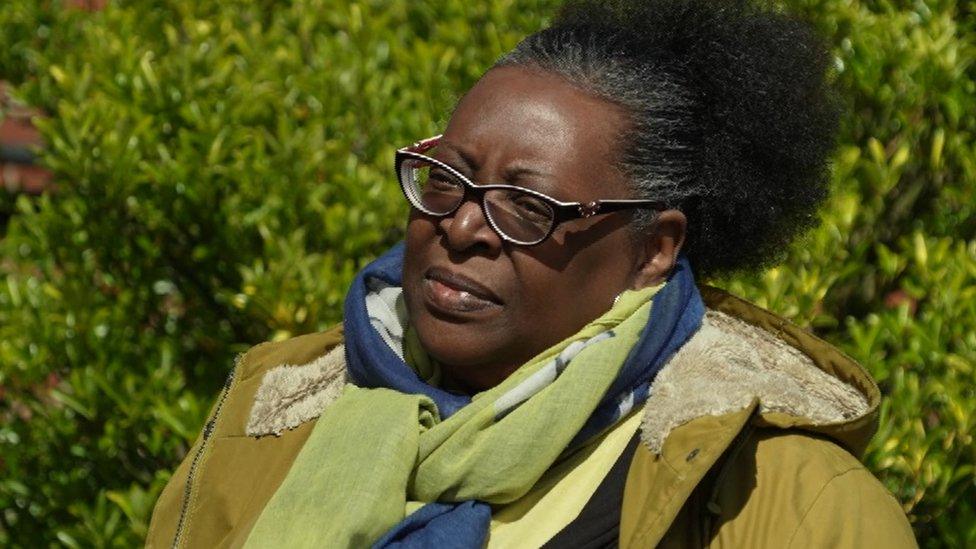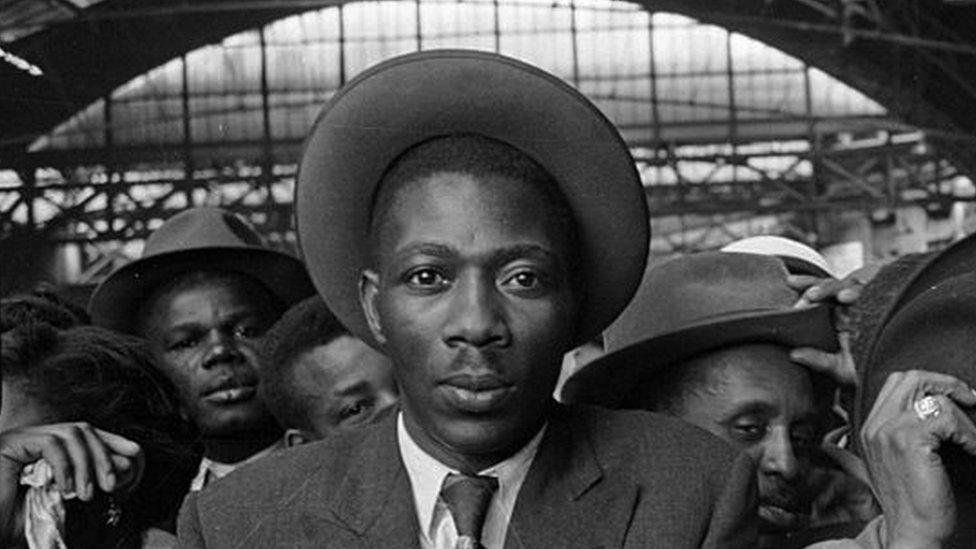Home Office asks Windrush man's son for DNA test
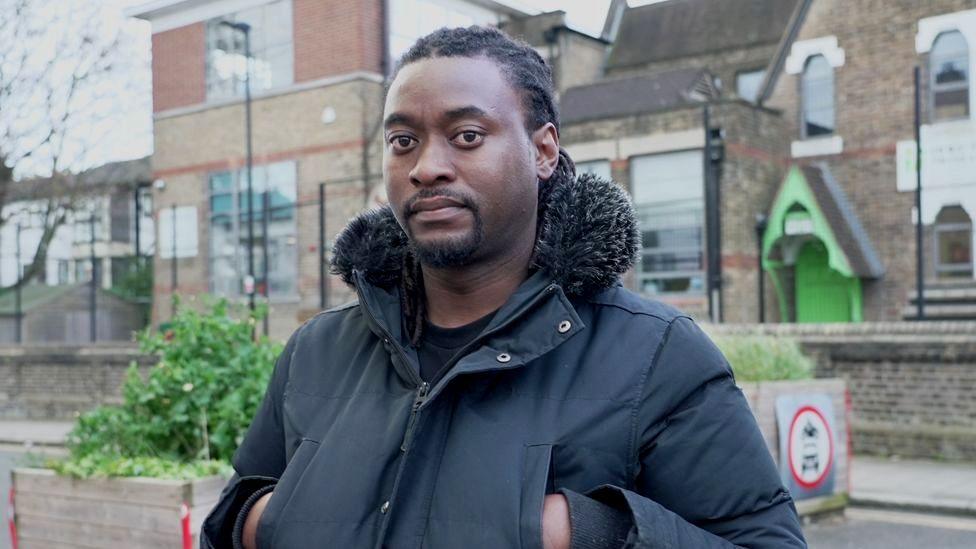
Dijoun Jhagroo-Bryan says he and his family continue to suffer
- Published
The son of a man who was a victim of the Windrush scandal says the Home Office asked him to do a DNA test to prove his relationship to his father as part of his compensation application.
Dijoun Jhagroo-Bryan received the "outrageous" letter asking for more evidence of his relationship with his father, Anthony Bryan, who was nearly deported in 2017 after living in Britain for 50 years.
A human rights lawyer representing hundreds of Windrush victims said the Home Office's request was "intrusive and traumatic".
The Home Office now says Mr Jhagroo-Bryan is not required to provide DNA evidence after BBC News asked for a response to this case.
The government apologised in 2018 after some of the Windrush generation and their children were wrongly told they were in the UK illegally.
Its hostile immigration policy affected their right to work, find homes and have NHS treatment.
Some were detained and faced deportation.
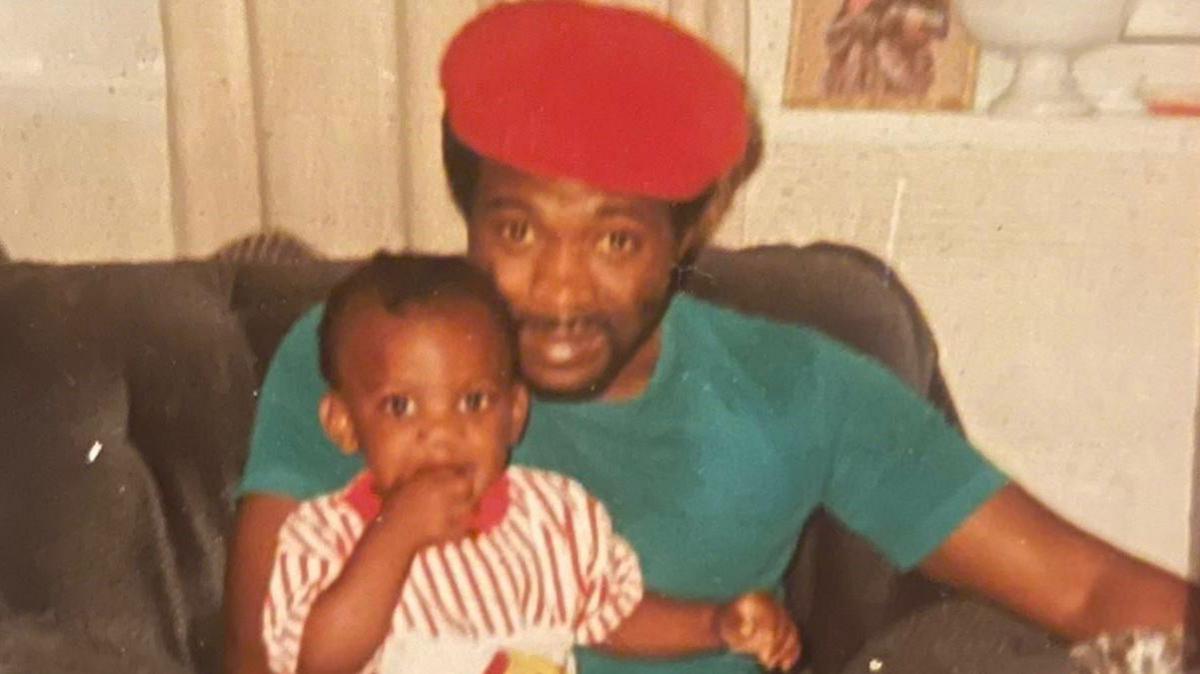
Mr Jhagroo-Bryan (pictured as a baby, on his father's lap) said the Home Office letter was "another slap in the face" after the Windrush scandal
Anthony Bryan, 66, lived in London after coming to the UK from Jamaica when he was eight.
In 2017, he was arrested, held in a detention centre twice - once for nearly three weeks - and almost deported back to Jamaica.
His story was made into a BBC drama in 2020.
Mr Bryan, who is on medication for a serious lung condition, accepted a compensation offer from the Home Office in 2023 after five years of what he says were constant setbacks and delays.
Children of Windrush descendants are also eligible to apply for compensation, external if they can prove they have suffered losses.
A similar scheme is in place for families of those affected by the Post Office scandal.
Dijoun Jhagroo-Bryan, 39, has applied for compensation as he says he has been left with long-term trauma and financial losses, and his own children were affected after not being able to see their grandfather when he was detained.
"I've suffered watching my dad being held in prison and I've suffered going through the steps that I needed to do in order to get him to stay in the UK," he said.
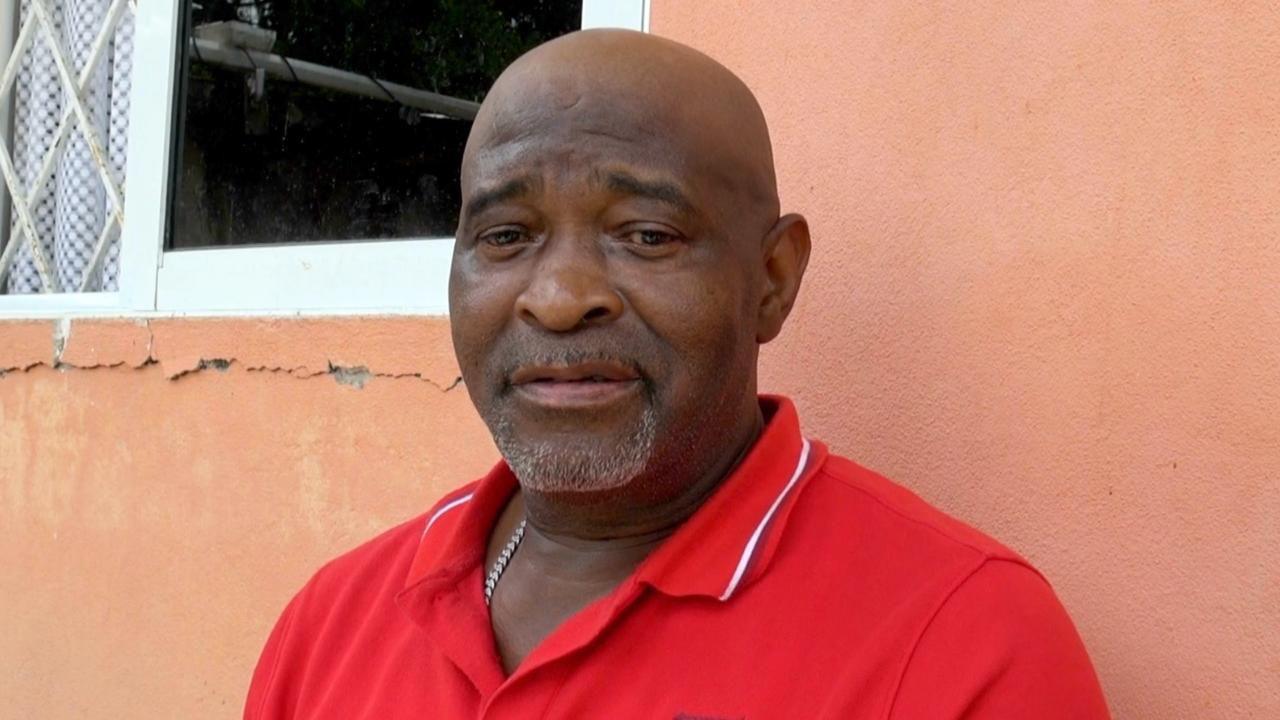
Anthony Bryan was wrongly detained in 2017
As part of the process, Mr Jhagroo-Bryan received a letter from the Home Office asking for more proof that Mr Bryan was his father.
The letter, seen exclusively by BBC News, stated he could voluntarily submit further evidence to support his application - such as post-natal hospital/doctor/midwife records or nursery and primary school records which name Anthony Bryan as his father.
DNA evidence, although voluntary, would also be considered, the letter said.
'Degrading'
Mr Jhagroo-Bryan said the letter had caused him and his family even more upset.
“It’s outrageous. Me submitting a DNA test doesn't change what I've gone through."
Mr Bryan said he could not believe it when his son told him about the letter.
“They’re at fault and still we have to fight this and fight that, do a DNA test and get the midwife," he said.
“It’s degrading and, once again, it feels like the Home Office is insulting your intelligence."
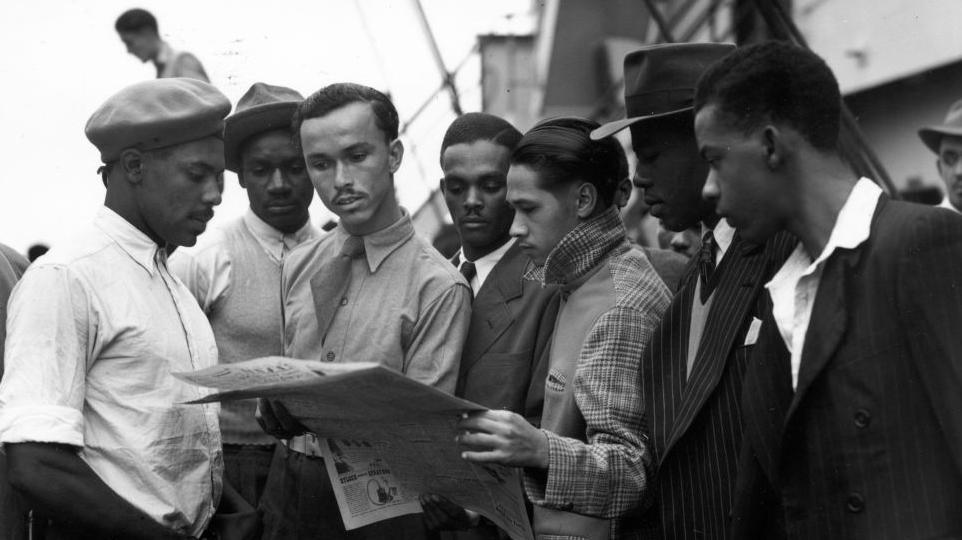
The Empire Windrush ship brought one of the first large groups of Caribbean people to the UK in 1948
Human rights lawyer Jacqueline McKenzie said: "I'm not surprised that this has now become an issue in the context of Windrush.
“The treatment of black people generally is so bad across society and particularly by the Home Office.”
In some immigration cases the Home Office can ask applicants to provide more evidence of their biological relationship with a family member such as a birth certificate, DNA test results or a UK court order.
But Ms McKenzie said this was the first time she had heard about DNA requests from Windrush victims.
She believes they are being held to a different standard compared with families of other political scandals, such as the Post Office.
"It's absolutely shocking,” she told the BBC.
“I think racism is at the heart of this.”
A Home Office spokesperson said: "Claims for the Windrush Compensation Scheme are considered on their individual merits.
"When necessary, further information may be requested to ensure we can issue the maximum award available, at the earliest point possible and we will support individuals on how to provide further evidence.”
They added: “The government is committed to righting the wrongs of the Windrush scandal and making sure those who are eligible and entitled to compensation under the Windrush Compensation Scheme receive the compensation they rightly deserve."
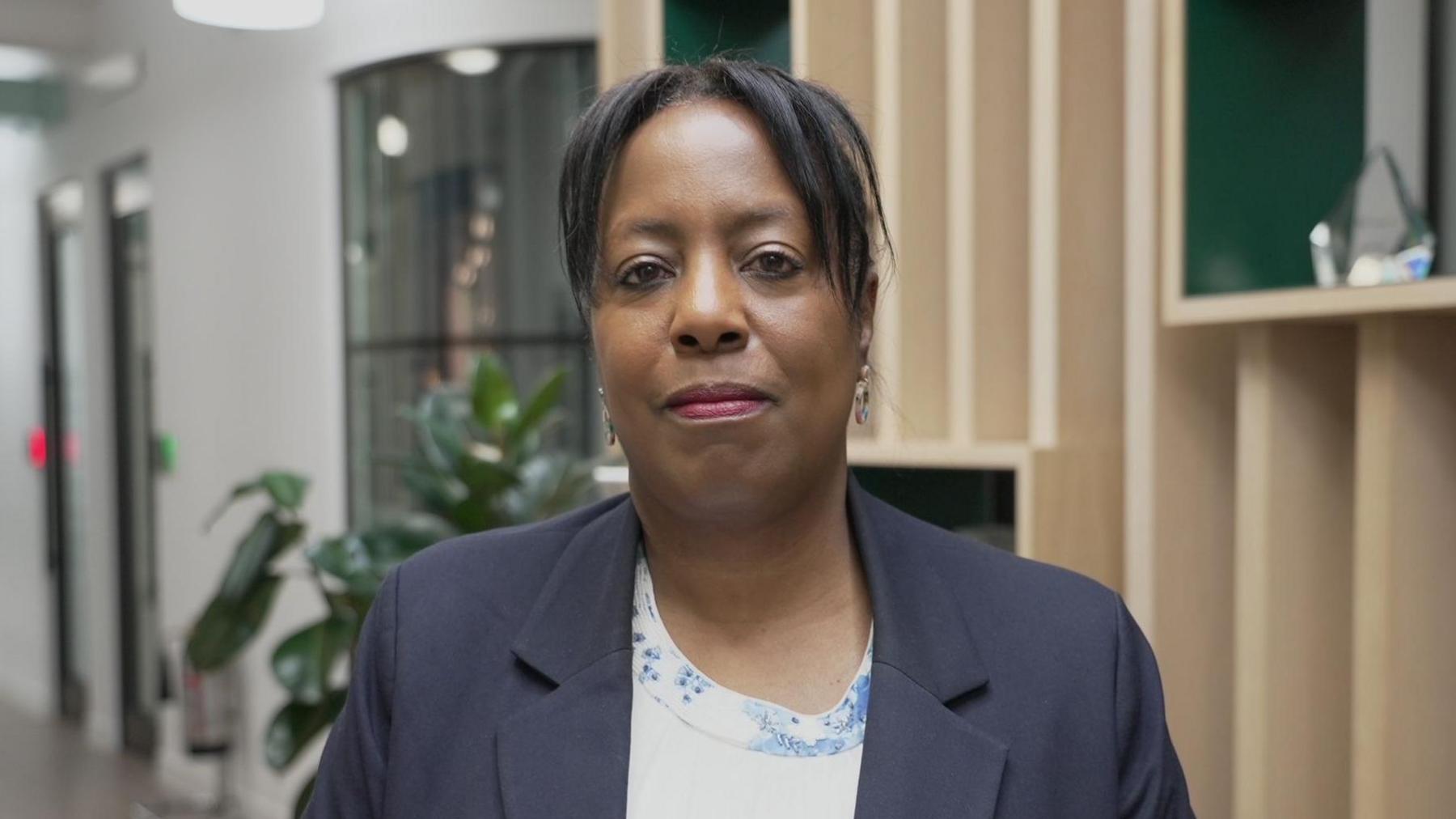
Jacqueline McKenzie says it is the first time she has heard of a DNA request under this compensation scheme
Related topics
- Published19 March 2020
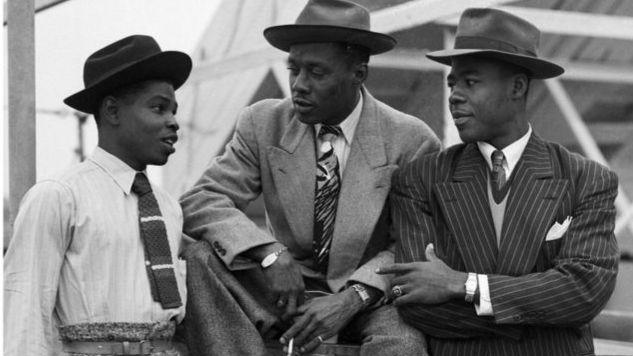
- Published4 May 2021
